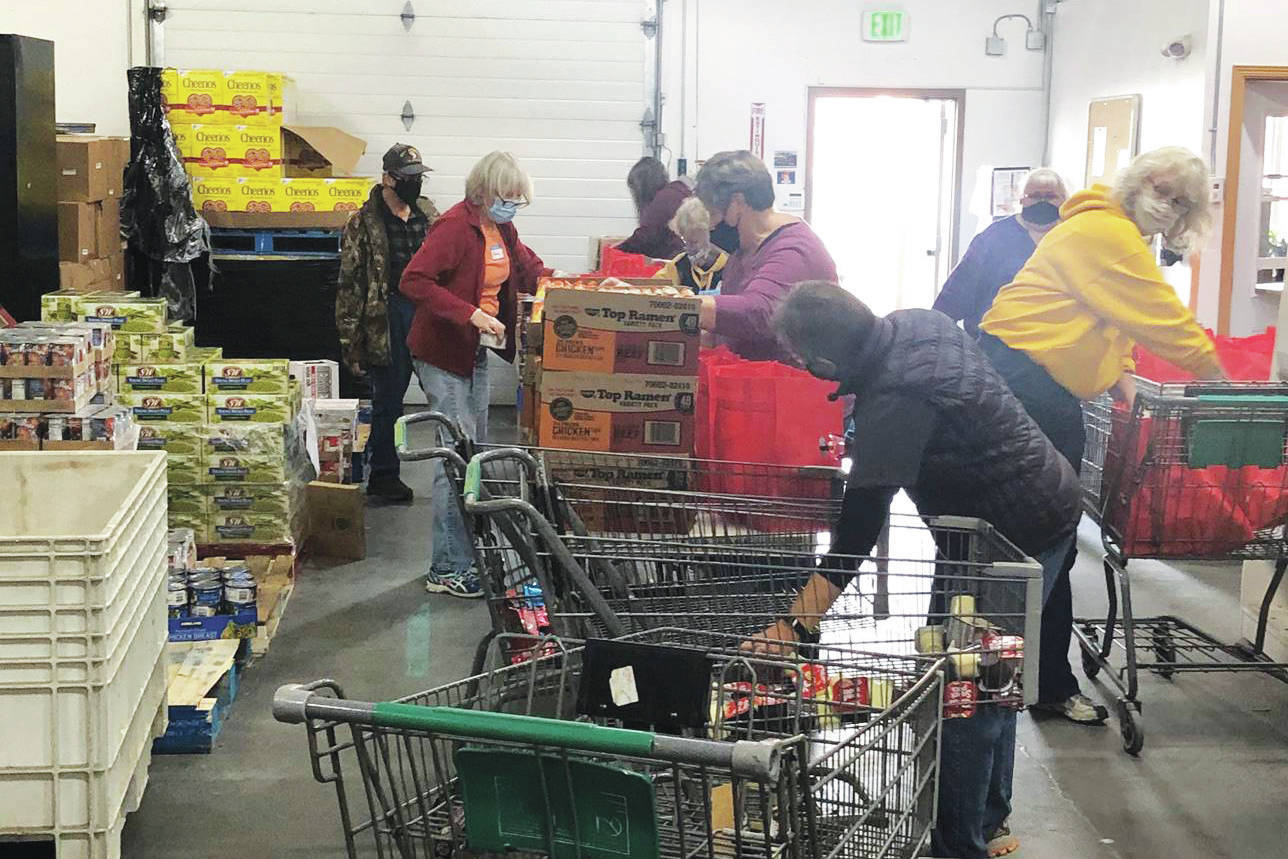The Kenai Peninsula Food Bank, a nonprofit just outside the city of Soldotna, keeps smashing food distribution records.
“Our area was as hard hit as any in the state because of fishing, tourism, no cruise ships,” Greg Meyer, executive director at the food bank, said. “There were a lot of other downturns, like people not working on the slope.
“Part of it is COVID, and part of it is just economic conditions at the moment.”
The food bank distributed 267,000 pounds of food in October. Meyer said that is the most ever distributed by the food bank, which opened in 1988. As a point of reference, 80,000 pounds were distributed in October 2019. The takeout meals from the diner also are running about triple from last year.
The food bank has been breaking records for a while now, distributing 197,000 pounds in August and 217,000 pounds in September.
“Part of it is that we’ve had access to special programs that allow us to do more,” Meyer said.
The food bank has gotten large injections of coronavirus relief bill funding from the cities of Soldotna and Kenai. Soldotna gave $250,000, then an additional $34,000. Kenai gave $65,000, then an additional $12,000.
Thanks to the money from the cities, Meyer said the food bank is assembling 800 food bags each Saturday and Sunday, then distributing the bags in Kenai on Monday and Soldotna on Tuesdays, Wednesdays and Thursdays.
Meyer said everything in the bags is shelf-stable, meaning items like soups, canned meats, pastas, granola bars and even milk.
According to Meyer, one big reason all the items are shelf-stable is that the food bags program is set to end at the end of December, if there is not another government program.
“It’s going to be a real challenge come January,” Meyer said. “That’s why we’re getting the bags out. We’re hoping it will give people the chance to stock up a bit.”
Adding to that challenge is the smaller number of food drives this year because so many places have scaled back due to the new coronavirus pandemic.
Meyer said the food bank’s staff of 11, plus two part-time workers, has not increased. The food bank also has 20 volunteers. Normally, there are 10 times that number of volunteers, but Meyer said that number has been cut in order to put coronavirus mitigation measures in place.
So far, Meyer said the measures are working and the virus hasn’t spread through staff or volunteers. Meyer said the measures can mean volunteers and staff are working outside in cold, tough conditions.
“This community is so supportive and generous,” Meyer said. “Everybody is tired of COVID. What’s going on here, so people can get their food, I can never express enough gratitude for that.”
Meyer said the United States Department of Agriculture’s Farmers to Families Food Box Program also is starting up again. The USDA purchases produce and milk from farmers and distributes it to those in need.
According to Meyer, this is the fourth round of the program. This current round will end in December.
Meyer said the program has been a challenge because the items are perishable.
“Our trucks can cool, but they don’t heat,” Meyer said. “We’ve had to shuffle a lot of things around to keep things from freezing. Fortunately, we have a lot of hardy, tough volunteers that can do that.”
With so much going on, and with so many other organizations taking on Thanksgiving, Meyer said the food bank has mostly opted out of the holiday.
With help from Marathon Oil, the food bank did buy a semi load of turkeys at a very reasonable price and is making them available to pantries across the peninsula.
Meyer said the community can help in two ways right now.
Donations of shelf stable items are always important as families look to stock their pantries for the winter.
Cash donations are also important. While Soldotna and Kenai paid for the transportation costs associated with the food bags, Meyer said the Farmers to Families program does not include the cost of picking up the food in Anchorage, then distributing that food across the peninsula.

